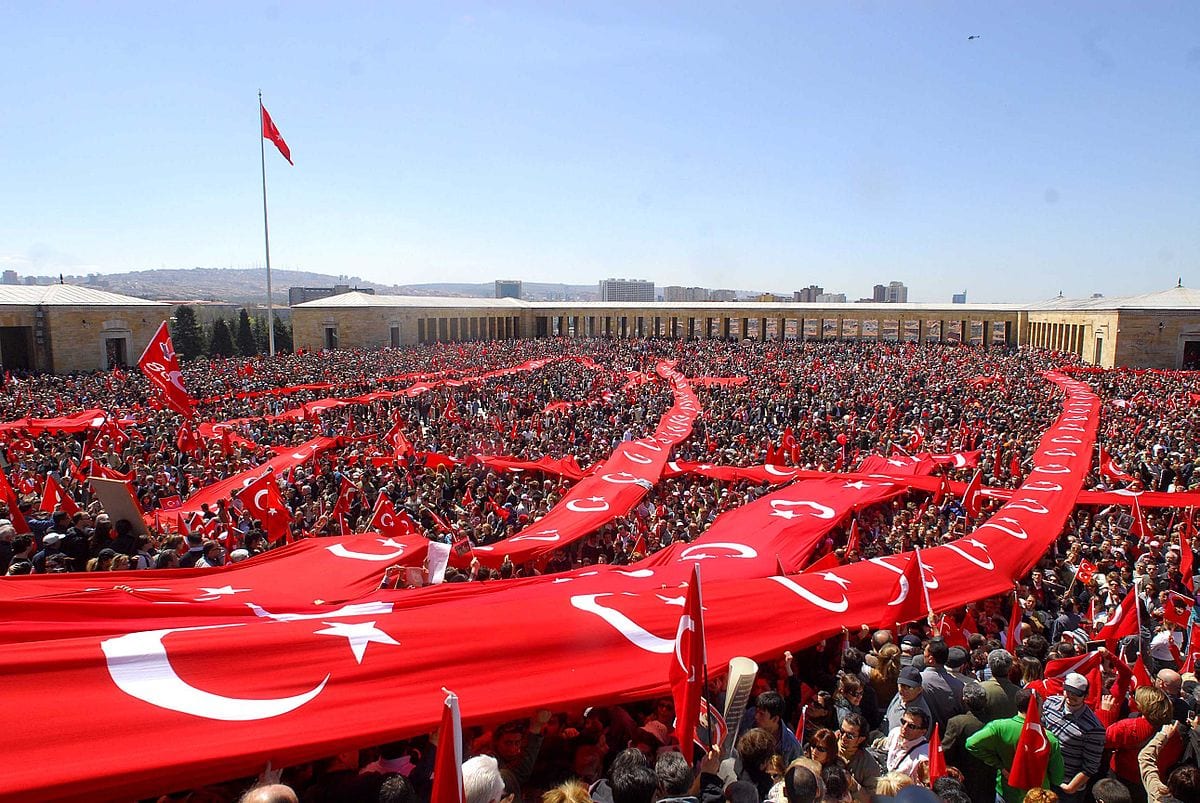Turkish President Erdogan demands re-run of Istanbul mayoral election, as Turkish economy continues to slump.
BY KRISTINA JOVANOVSKI/ THE MEDIA LINE
Istanbul is awaiting a decision from the country’s election board on whether there will be a re-run of its mayoral vote, which was initially won by the main opposition’s candidate.
The CHP stated overnight all recounts had now been completed and that Ekrem Imamoglu was ahead by 13,534 votes. The opposition party added that it would now await the election board’s decision on whether to formally declare Imamoglu mayor.
Turkish President Recep Tayyip Erdogan’s ruling AK Party applied for a re-run to the High Election Board (YSK) on Tuesday over claims of irregularities and fraud. If accepted, the election will likely be scheduled for June 2.
The CHP’s Unal Cevikoz, a parliamentarian from Istanbul who is Vice-Chairman of Foreign Affairs, insisted that Imamoglu should be declared the mayor, even if a re-run is being considered.
“So, the question is: will Turkey still be governed by [the] rule of law or not? If it is not, then we will see what the repercussions will be,” Cevikoz wrote in a statement to The Media Line.
The election board is viewed as one of the more independent institutions in Turkey, where Erdogan has increasingly centralized power.
The YSK already granted a partial recount in Istanbul after Erdogan’s party requested a full one.
The AK Party still insists that its candidate, former prime minister Binali Yildirim, won the vote.
After the local elections on March 31, both parties put up victory posters across Turkey’s largest city, containing over 15 million people. Imamoglu also changed his Twitter profile to describe himself as the mayor of Istanbul.
Erdogan claimed there were widespread irregularities and that the vote was somehow linked to organized crime.
AK Party Deputy Chairman Ali Ihsan Yavuz, who put in the application for the Istanbul re-run, arrived at the election board with suitcases filled with documents.
“There is clearly an organized unlawfulness, an election fraud here. The only authority that can end this controversy is the YSK,” Yavuz told reporters, according to the Reuters news agency.
Meanwhile, the CHP’s candidate in the capital Ankara was officially declared the winner last week.
The uncertainly over the elections has led to a drop in the Turkish currency, highlighting foreign investors’ fears over the political instability.
Investor confidence is critical for Erdogan because the country has relied on foreign loans to fuel economic growth, which the Turkish president has championed during his time in power.
The currency’s free-fall over the past year, sparked by a diplomatic crisis with the US, led to rising living costs for Turkish citizens. Disappointment over the economy is widely seen as leading to the AK Party’s losses.
This all comes on the backdrop of another, and likely to be much larger, impending crisis with Washington over Ankara’s prospective purchase of the Russian-made S-400 missile defense system.
The US is concerned the system could jeopardize its F-35 fighter jets and American officials have raised the possibility of sanctioning Turkey if it goes through with the deal with Moscow.
During the currency crisis, Erdogan drummed up anti-American, nationalist sentiment, leading to government supporters smashing iPhones and tearing up US dollars.
The elections are significant because they have highlighted that Erdogan has weaknesses, according to Soner Cagaptay, Director of the Turkish Research Program at The Washington Institute.
“The suggestion was that Erdogan had just built a magic formula that could keep him [getting] elected forever,” Cagaptay told The Media Line.
Erdogan’s party and its predecessor controlled Istanbul for over two decades and the Turkish president was front-and-center during the recent election campaign.
Max Hoffman, Associate Director of National Security and International Policy at the Center for American Progress, believes the victories could embolden the opposition by giving other parties the opportunity to prove to the Turkish public that they can govern effectively and that elections still matter.
He also noted that the results may threaten the current power dynamics within the AK Party and its coalition partner, the ultra-nationalist MHP.
“It may serve as a warning shot for [Erdogan] that his political strategy of polarization is running out of steam,” Hoffman told The Media Line. “This could prompt a slight moderation in his tone…though you’d lose a lot of money betting on him moderating.”









